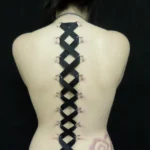When considering medications for conditions such as hair loss or hormone-related issues, you might ask, why can women not take dutasteride. Dutasteride is primarily prescribed for benign prostatic hyperplasia (BPH) in men, and its use in women is generally contraindicated due to significant safety concerns, particularly regarding hormonal balance and potential teratogenic effects.
Pharmacological Overview and Safety Concerns
What is Dutasteride?
Dutasteride is a 5-alpha reductase inhibitor, a class of medications that blocks the conversion of testosterone into dihydrotestosterone (DHT). DHT plays a key role in conditions like BPH and male pattern hair loss. However, the hormonal mechanisms affected by dutasteride are complex, and interfering with them in women can lead to unpredictable side effects.
Hormonal Effects and Teratogenicity
One of the primary concerns is that dutasteride may cause hormonal imbalances in women. DHT and other androgens are essential for various physiological functions, and altering their levels can lead to side effects such as menstrual irregularities, decreased libido, and even changes in mood.
More critically, dutasteride is known to be teratogenic, meaning it can cause birth defects if a woman who is pregnant or might become pregnant is exposed to the drug. Because of this risk, women of childbearing potential are strongly advised against using dutasteride.
Lack of FDA Approval for Female Use
Dutasteride is not approved by the FDA for use in women, largely due to the potential risks and the limited data on its effects in the female body. The absence of clinical trials focused on women further reinforces the caution exercised by healthcare professionals when it comes to prescribing this medication to female patients.
Alternatives for Women
For conditions like hair loss or hormonal imbalances in women, there are alternative treatments available that have been tested and approved for use in female patients. These include medications such as minoxidil for hair loss or hormonal therapies that are specifically designed to work within the female endocrine system without posing the same risks as dutasteride.
FAQs
-
Why can women not take dutasteride?
Women are generally advised against taking dutasteride because it can disrupt hormonal balance and is known to be teratogenic, posing significant risks to fetal development if taken during pregnancy.
-
What are the potential side effects of dutasteride in women?
Potential side effects include menstrual irregularities, decreased libido, mood changes, and other hormonal disruptions. The lack of clinical data on women makes it difficult to fully understand the long-term risks.
-
Is dutasteride ever prescribed to women under any circumstances?
Dutasteride is not typically prescribed to women, especially those who are of childbearing potential. In rare cases, it might be considered under strict medical supervision for conditions like severe hair loss, but only when the benefits outweigh the risks and effective contraception is ensured.
-
What alternatives are available for women experiencing hair loss?
Women experiencing hair loss can explore treatments such as minoxidil, low-level laser therapy, or other hormone-based treatments that have been approved for female use and have a safer profile.
-
Where can I find more reliable information on the safety of dutasteride for women?
For more detailed and up-to-date information, consider reviewing resources from the FDA, MedlinePlus, or consulting with a healthcare provider who specializes in hormonal therapies and women’s health.










